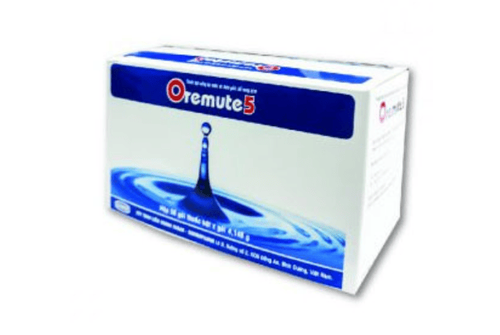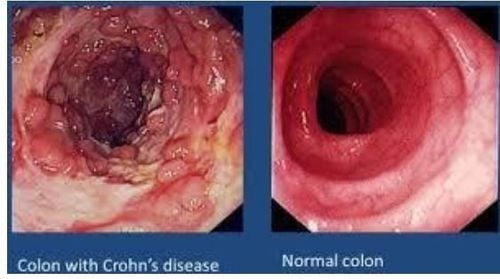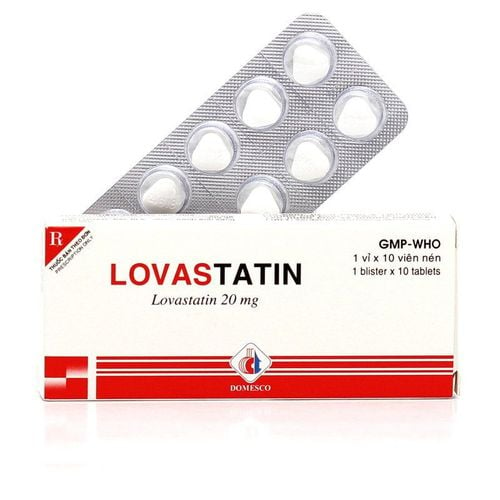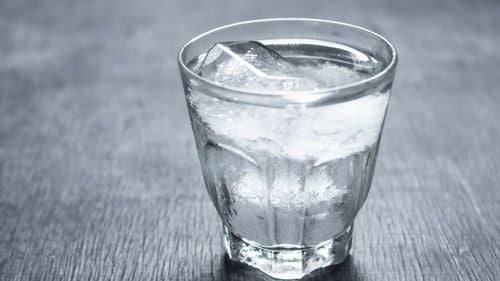This is an automatically translated article.
Nutrition is an important part of the health of all children, but is especially important for children undergoing cancer treatment. This article can help you learn about your child's nutritional needs, how cancer affects it, and how it's treated.1. Why good nutrition is important
Nutrition is an important part of the health of all children. It is especially important for children undergoing cancer treatment to get the nutrients they need. So, what should children with cancer eat? In fact, eating the right foods before, during, and after treatment can help your child feel better and healthier. The American Cancer Society has prepared this guide to help you deal with treatment side effects that may affect your child's ability to eat.Benefits of good nutrition Good nutrition is especially important when children have cancer and are undergoing treatment. Both cancer and its treatments can affect a child's appetite, food tolerance, and ability to use nutrients. Eating
Cancer and cancer treatments can also affect how the body tolerates certain foods and uses nutrients. The nutritional needs of children with cancer are different for each child. Doctors, nurses, and dietitian can help define nutrition goals and plan ways to help children achieve them.
Eating well during cancer treatment can help a child:
Tolerate treatment better and its side effects Stick to treatment schedule Heals and recovers faster Less risk of infection better during treatment Have better strength and energy Keep weight and their body stores nutrients Do better at maintaining normal growth and development Feel better and have quality better lives - they are less irritable, sleep better and work better with the health care team Each child with cancer has unique nutritional needs. You can talk to the health care team any time you have questions about how much your child has eaten or drank. Doctors, nurses, dietitians, speechologists, and even dentists can work with you to figure out your child's needs and come up with an eating plan.
A Registered Dietitian (RD) is one of the best sources of information on children's diets. This healthcare professional has special training in food, nutrition, biochemistry, and physiology. Dietitians use this knowledge to promote health and prevent disease through counseling and education. If you're going to see a dietitian, be sure to write down any questions before the meeting so you don't forget anything. Ask them to repeat or explain anything that is not clear. If you have questions about something in this guide, a nutritionist can explain it to you in more detail.
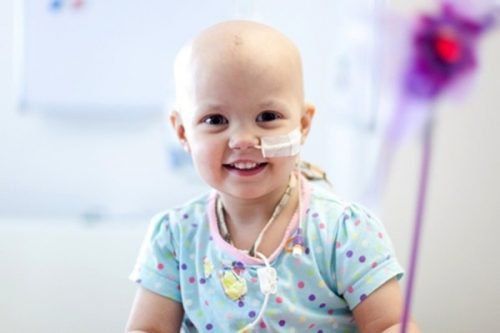
Điều đặc biệt quan trọng đối với trẻ em đang điều trị ung thư là nhận được các chất dinh dưỡng cần thiết
2. Nutrition for children with cancer
Nutrition for children with cancer needs protein, carbohydrates, fats, water, vitamins and minerals. And the diet for children with blood cancer is similar. A dietitian can help you understand your child's specific needs and make an eating plan. In addition, the specialist performs an assessment of the child's baseline nutritional status (Is your child overweight? Is your child underweight?), diagnosis, treatment plan, age, activity level, and categories. Current medications are all used for nutritional planning.2.1. Protein The body uses protein for growth; repair tissues; and to maintain the skin, blood cells, the immune system and the lining of the digestive tract. Children with cancer who don't get enough protein can break down muscles to provide the fuel their bodies need. This makes it longer to heal and may decrease your ability to fight infection. After your child has surgery, chemotherapy, or radiation, he or she may need extra protein to heal tissues and help prevent infection.
Protein plays a key role in children's growth and development. During illness, your child's protein needs will increase. Work with your child's cancer care team to find out your child's specific needs at this time.
Good sources of protein include fish, poultry, lean red meat, eggs, dairy products, nuts and nut butters, dried beans, peas and lentils, and soy foods .
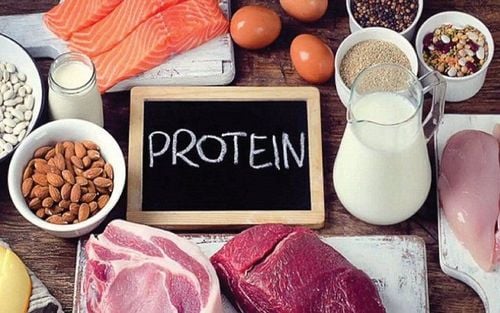
Những loại thực phẩm giàu protein
The best sources of carbohydrates: fruits, vegetables and whole grains, which provide the body's cells with the vitamins and minerals, fiber and phytonutrients (the main plant-based nutrients) they need.
Whole grains or foods made from them contain all the essential parts and naturally occurring nutrients of the whole grain. Whole grains are found in cereals, breads, flours, and crackers. Some whole grains can be served as a side dish or part of an appetizer. When choosing a whole-grain product, look for the words whole-grain, whole-wheat flour, whole-wheat oatmeal, or whole-wheat flour.
Fiber is the part of plant foods that, for the most part, cannot be digested by the body. There are 2 types of fiber. Insoluble fiber takes up space in the intestines and speeds the movement of food waste out of the body. Soluble fiber binds with water in the stool to help soften stools while it slows digestion. Foods rich in fiber can be fermented so that part of it is absorbed.
Other good sources of carbohydrates include bread, potatoes, rice, pasta, pasta, cereals, dried beans, corn, peas and beans. These carbohydrate foods also contain B vitamins and fiber. Sweets include desserts, candies, and sugary drinks, which provide your child with carbohydrates, but very few other nutrients.
2.3. Fat Fats play an important role in providing energy in the diet. Fats and oils are made up of fatty acids and are a great source of energy (calories) for the body. The body breaks down fats and uses them to store energy, insulate body tissues, and carry certain vitamins through the bloodstream.
You may have heard that some fats are better than others. For the most part, unsaturated fats (monounsaturated and polyunsaturated) should be chosen more often than saturated or trans fats.
Monounsaturated fats are mainly found in vegetable oils such as olive oil, canola oil and peanut oil. They are liquid at room temperature.
Polyunsaturated fats are mainly found in vegetable oils such as safflower, sunflower, corn and flaxseed oils. They are also the main fats found in seafood. They are liquid or soft at room temperature.
Saturated fat or saturated fatty acids are mainly found in animal source foods, such as meat and poultry, whole or reduced fat milk, cheese and butter. Some vegetable oils such as: coconut, palm kernel oil and palm oil are saturated. Saturated fats at room temperature are usually solid.
Trans fatty acids are formed when vegetable oils are processed into margarine or shortening. Good sources of trans fats include snacks and baked goods made with partially hydrogenated or processed vegetable oils. Trans fats are also found naturally in some animal products, such as dairy products.
Certain fatty acids, such as linoleic acid and alpha-linolenic acid, are called essential fatty acids. They're needed to build cells and make hormones, but because the body can't make them, we have to get them from food. Soybean oil, canola oil and walnut oil are good sources of essential fatty acids.
2.4. Water Water and liquids or liquids are important to health. Most cells in the body need water to function properly. If your child doesn't drink enough fluids or loses fluids from vomiting or diarrhea, he or she may become dehydrated (the body doesn't have as much fluid as it needs). If this happens, the fluids and minerals that keep the body running can become dangerously out of balance.

Nếu trẻ không uống đủ nước hoặc mất nước do nôn mửa hoặc tiêu chảy, trẻ có thể bị mất nước (cơ thể không có nhiều chất lỏng cần thiết)
You can tell if your baby is dehydrated by gently pinching the skin above the breastbone. If the skin does not return to normal and remains raised, the child may become dehydrated. Other symptoms of dehydration include dry mouth, dark urine, listlessness, and dizziness.
2.5. Vitamins and minerals The body needs small amounts of vitamins and minerals for normal growth and development and for the body to function properly. Vitamins and minerals also help the body use the energy (calories) it gets from food.
Children who eat a balanced diet usually get plenty of vitamins and minerals. But studies have shown that even healthy children often don't get enough calcium and vitamin D, which are especially important for bone growth. Some drugs used to treat cancer can also lower calcium and vitamin D levels, so extra large amounts may be needed.
A child undergoing cancer treatment can find it difficult to eat a well-balanced diet. Common side effects of treatment, such as nausea, vomiting, and mouth sores (mucositis) can make it difficult to eat. If your child is having trouble eating, get help from a doctor, nurse, or dietitian.
Your doctor may recommend a daily multivitamin while your child is being treated. But a multivitamin cannot replace eating enough calories and protein. Always talk to your doctor before giving your child vitamins, minerals, or any supplements, as some of them can interfere with and affect cancer treatment.
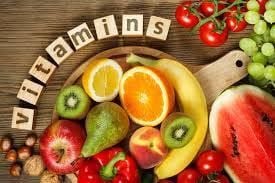
Cơ thể cần một lượng nhỏ vitamin và khoáng chất để tăng trưởng và phát triển bình thường, đồng thời giúp cơ thể hoạt động bình thường
Please dial HOTLINE for more information or register for an appointment HERE. Download MyVinmec app to make appointments faster and to manage your bookings easily.
Reference source: cancer.org




